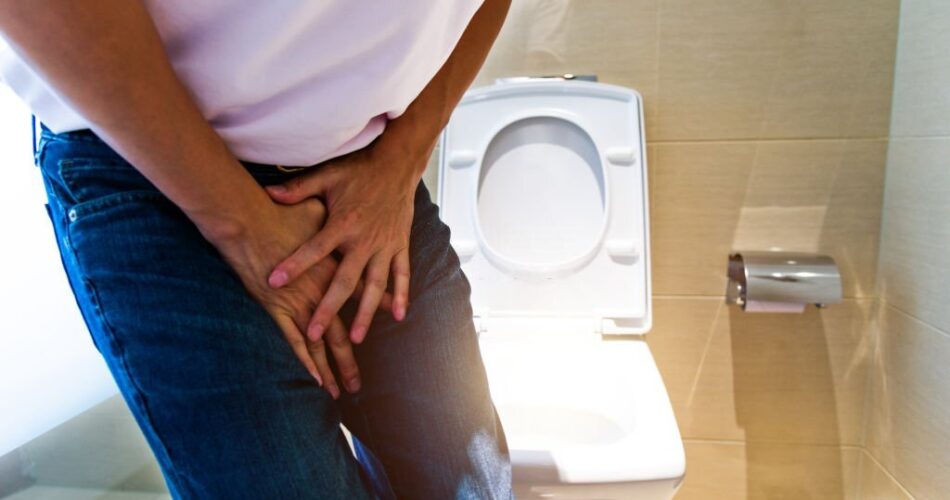


Studies have shown that about 25% of the total women population suffers from dysuria or painful urination annually. Besides women, men are also at risk of developing dysuria. Painful urination occurs mostly because of infections affecting the urinary tract system in the body. These infections can be cured with home remedies which further help treat dysuria. To learn about effective home remedies for painful urination, keep reading.
Table of Contents
What Is Dysuria?
Having a difficult time or pain while urinating is called dysuria. It can be a sign of many underlying health conditions. Remember, dysuria does not refer to an increased frequency of urination. This term is used when patients experience persistent and mild to severe pain during urination.
What Are The Symptoms Of Dysuria?
Patients suffering from dysuria can experience below mentioned symptoms.
- Pain before, during, or after urination
- Burning sensations during urination
- Itching or irritation during urination
- Inflammation in the lower urinary tract
Causes Of Dysuria
Painful urination or dysuria can occur due to many reasons, as discussed below:
Urinary Bladder Stones: These can interrupt the normal flow of urine out of the body and can cause dysuria.
Urinary Bladder Inflammation: The storage of urine in the bladder and then contraction of the bladder’s smooth muscles for expelling the urine out can be a reason for painful urination if inflammation occurs.
Urinary Tract Infections: UTIs caused by bacterial or fungal attacks is the
Anticarcinogenic Drugs: Sometimes, drugs administered to remove cancerous cells irritate the urinary bladder and can lead to dysuria.
Urinary Tract Surgery: If a person has undergone some surgical process that involves the incision or insertion of medical devices or instruments in the urinary tract can also result in dysuria.
Kidney Diseases: Renal stones and infections can also lead to pain while urinating among patients.
Sexually Transmitted Diseases: STDs such as gonorrhea can also adversely alter the lower urinary tract and result in dysuria.
Urethral Stricture: Narrowing of the urethra, a tube responsible for carrying urine out of the body, can also produce pain while urinating.
Urethritis: Infections attacking the urethra have a prominent symptom of dysuria.
Prostatitis: The inflammation of the prostate gland due to infection or any other reason can also lead to dysuria.
Besides the above-mentioned reasons, vaginal infection, vaginal inflammation, and personal care products containing irritating substances can also be a reason for dysuria.
Home Remedies For Painful Urination
Antibodies are usually considered the first option to treat infections affecting the urinary tract and causing dysuria. But it can produce many side effects in the body along with healing effects. Home remedies, including natural ways of treating painful urination, can be a better option in this case. Here are discussed the effective home remedies which can help patients to alleviate painful urination.
Increase Water Intake
Increasing water consumption is surely the best home remedy for treating painful urination. When we drink a lot of water, it results in frequent urination. Frequent urination further helps remove toxins, microbes, and any other chemical substance from the urinary tract, which can be responsible for causing pain while urinating. Let’s understand the connection between increased water consumption and the alleviation of painful urination.
Painful urination occurs when there occurs abnormality in the functioning of the urinary tract due to the attack of any foreign particle, such as toxins, bacteria, viruses, or chemical substances. These foreign particles remain in the urinary tract and disturb the normal metabolism there, thus causing persistent pain whenever a patient visits the washroom for urination.
To relieve this pain, expelling the irritating substances from the urinary tract is necessary. Boosted intake of water or other fluids accelerates kidney functions, which is the main organ responsible for the excretion of toxins from the body. More urine will be formed and released out of the body with irritating substances. It can further help patients alleviate the pain while urination.
Also, ensure you drink purified water free of microbes and toxins. Drinking contaminated water can further exacerbate the symptoms of dysuria. Studies also showed that people suffering from urinary tract illness because of bacterial attacks observed significant improvement in their symptoms when they increased their water intake.
Consume Cranberries

Cranberries are frequently recommended as a successful home remedy for dysuria. Hippuric acid, anthocyanins, and d-mannose are just some unique substances found in cranberries. All of these substances are essential for treating and reducing dysuria symptoms.
The main effect of cranberries is to lessen bacterial adhesion to urinary system walls. Promoting the quick flushing of pathogenic germs when more water is drunk further inhibits bacterial development. Cranberries are available in various forms, including as drinks and supplements.
However, the effectiveness of cranberries in treating urinary tract infections is not well supported by scientific research. Numerous scientific research found that using antibiotics was a more effective treatment for painful urination than cranberry. Also, some people may get gastrointestinal problems from eating cranberries. Another serious adverse effect of consuming cranberries frequently is the development of kidney stones.
Practice Sanitary And Healthy Habits
A hygiene practice is required to treat painful urination symptoms properly. Make sure there are no microorganisms in your external environment. The optimum environment for preventing bacterial growth is dry. Keeping a healthy atmosphere is another way to guarantee the health of your urethra.
It is best to wear cotton clothing and loose-fitting pants. On the other hand, sweat might exacerbate the illness by encouraging the growth of bacteria. A personal hygiene item without fragrances can also aid in limiting the spread of microorganisms.
Use Certain Oils
Dysuria can be effectively treated with some oils with antibacterial properties. The two main oils that patients can use to treat painful urination are covered in the sections below.
Oregano oil: The strong antibacterial qualities of oregano oil enable it to destroy the germs that cause urinary tract infections. The main class of bacteria that oregano oil may efficiently eliminate is E. coli, eliminating the main reason for UTIs which can further be a reason for dysuria.
Since this oil is accessible in capsule form, it is simple to consume. Make sure your products are GMP-labeled and of professional quality. Applying directly to the skin should be avoided because it can severely burn the skin, especially the urethra.
Cod Liver Oil: This oil can assist with painful urination as well. Cod liver oil increases immunity, strengthening the body’s defenses against bacterial illnesses. Patients can take this oil by ingesting the available cod liver oil supplements.
Clove oil: This oil has the ability to restrict the growth of gram-positive and gram-negative infectious bacteria, which can be responsible for causing urinary tract infections. By reducing the complications of UTIs, clove oil further helps in reducing dysuria.
Use Cardamom
It is the spice that is commonly used for cooking purposes. Besides giving fragrance and taste to edibles, cardamom also offers significantly important medical uses. In addition to other health-giving properties, cardamom can also alleviate painful urination among patients.
Cardamom works by acting as a diuretic in the body. Diuretics increase the fluid release from the kidney, which means they cause frequent urination by boosting the body’s water loss. The more the water is excreted out of the body, the more the chances for the infectious microbes and toxins to be cleared out of the body systems with urine. The removal of toxins with water due to the consumption of cardamom then helps patients with dysuria to alleviate their symptoms.
Add Probiotics To Your Diet
When painful urination occurs due to fungal and bacterial attacks, adding probiotics to your diet is an effective home remedy for treating painful urination. One of the best ways of adding probiotics to your diet is to add it through yogurt. Yogurt is full of probiotics; probiotics refer to living microorganisms that benefit the body.
When a person increases the intake of healthy bacteria in the body, these bacteria fight with diseases-causing bacteria responsible for causing painful urination. An increased ratio of beneficial bacteria over attacking bacteria allows the body to combat urinary tract infections. It further alleviates the symptoms of urinary tract infections, including painful urination.
Increase Your Vitamin C Intake

Increasing vitamin C intake is one of the most effective natural remedies for curing painful urination caused by urinary tract infections. There is proof that taking vitamin C supplements along with other dysuria treatments like probiotics and antibiotics helps lessen its symptoms.
There are two possible explanations for why vitamin C is effective in curing dysuria:
- Urine becomes acidic due to vitamin C. The urinary tract’s acidic conditions stop bacteria from developing, preventing infections. For each given kind of bacteria, there is an ideal pH. UTI symptoms are lessened due to vitamin C intake altering the urine’s pH, making it unfavorable for bacterial development. Remember, though, the claim that vitamin C can cause urine to become acidic needs further scientific support.
- Vitamin C boost immunity in the body. Vitamin C encourages the phagocytosis of bacteria by enhancing the activity of immune cells. These cells also guard against tissue deterioration and aid in cell regeneration. Vitamin C helps treat bacterial infections, such as urinary tract infections since it helps the immune system.
Therefore, increasing vitamin C intake through natural foods or supplements is always recommended. The foods high in vitamin C include kale, broccoli, spinach, grapes, kiwifruits, oranges, guavas, strawberries, pineapples, and chili peppers.
Use Baking Soda
A common home remedy for dysuria is to mix baking soda with water and drink it. Studies have shown baking soda can alleviate UTI symptoms such as painful urination and dysuria.
For quick relief of dysuria, drink one teaspoon of baking soda mixed with eight ounces of water twice daily for at least three days. Be careful how much baking soda you consume, as excessive amounts can cause harm, including poisoning.
Conclusion
Painful urination or dysuria can be effectively treated with the home remedies we discussed above. Remember, dysuria can be a symptom of many underlying conditions; looking for proper checkups and treatments is always the best option in this case. If patients cannot cure dysuria with home remedies, they must consult the doctor.
Yes, the herpes virus transmitted through sexual activities can result in painful urination. It is because sores or swelling caused by herpes virus can block the urethra, which blocks the passage of urine out of the body, resulting in painful urination.
Chlamydia, gonorrhea, and infection caused by the herpes virus are the main sexually transmitted diseases that cause painful urination. There can be a burning sensation as well as pain while urination.
Yes, dehydration can cause painful urination. When there is a decreased fluid volume in the body, there are fewer chances of toxins and infectious microbes being eliminated from the body. Also, the concentration of minerals increases in urine during dehydration which can irritate the urinary tract and result in painful urination.
Drink plenty of water, urinate frequently, use a heating pad, take over-the-counter pain relievers, and avoid irritants (bubble baths, soaps, powders, or lotions in the genital area can cause irritation and potentially exacerbate symptoms).
Stay hydrated, urinate regularly, warm compresses, avoid irritants, wear cotton underwear, and avoid caffeine, alcohol, and spicy foods.
Post Disclaimer
The information contained in this post "Possible Causes and 8 Effective Home Remedies for Painful Urination (dysuria)" is for educational purposes only. Always consult your primary care doctor before using the remedies that are provided. The information is provided by The Hidden Cures and while we do timely, in-depth research on the information that we provide to you, everything stated may not be up to date or accurate from the time it was written.



